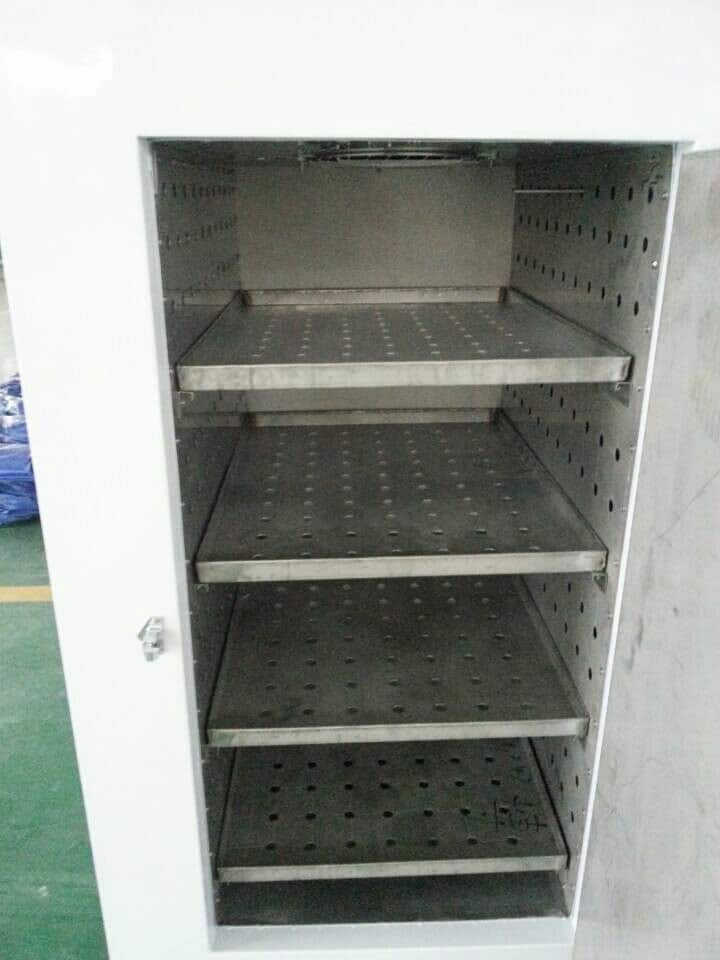Oven, as a common heating equipment, is widely used in various industries, especially in processes that require heating, drying, curing or heat treatment. Jiangsu Ruiyuan Heating Equipment Technology Co., Ltd. provides a series of oven products to meet the production needs of different industries, with high efficiency, energy saving and stable performance. Next, we will explore in depth the main use of the oven scene and its application in various industries.
1. electronics industry
In the electronics industry, ovens are mainly used for drying, dehydration, heat curing and heat treatment processes. Especially in the manufacturing process of electronic components, the oven is widely used in the following aspects:
- Drying of PCBs: Used to dry moisture on printed circuit boards (PCBs) to prevent short circuits or component damage.
- Drying of electronic components: Drying of electronic components and microchips in particular to avoid damage caused by humidity.
- Curing after welding: Some electronic assemblies require oven heat to cure the solder and ensure a strong and reliable connection point.
2. Food industry
Ovens are used in the food industry primarily to remove moisture, extend shelf life and improve the taste of food. Ovens are common in the following application scenarios:
- cure by drying over a fire (tea, meat etc): e.g. the baking process of bread, biscuits, pastries, etc.
- dry food: e.g. drying processes for fruits, vegetables, meat, etc. to remove moisture and increase shelf life.
- Sterilisation and maturation: Sterilisation is achieved by heating to ensure food hygiene.
3. Chemical industry
In the chemical industry, ovens are used for drying, curing and dewatering of a wide range of chemicals and raw materials. Their main applications are listed below:
- Drying of chemicals: Especially for solvent and moisture removal, the oven is a very important process step for every batch of chemicals produced.
- Catalyst activation: Some catalysts for chemical reactions need to be activated by the oven to improve their catalytic efficiency.
- Curing and heat treatment: For the curing of chemical materials, resins and coatings to achieve the desired hardness and properties.
4. Pharmaceutical industry
In the pharmaceutical industry, the role of the oven is mainly reflected in the drying and preservation of drugs and raw materials, especially in the following aspects are widely used:
- Drying of herbs: Fresh herbs need to be dehydrated in an oven to retain their active ingredients.
- Drug curing: Some pharmaceutical products need to be heated and cured in an oven during the manufacturing process to ensure quality and safety.
- Preparation drying: e.g. powdered drugs need to be dried to improve their stability and storability.
5. Metal and machinery industry
Ovens are also widely used in the metal and machinery industries, especially in metalworking and painting processes, where they play a vital role:
- Curing of metal coatings: Ovens are commonly used in the curing process of coatings, such as anti-corrosion coatings and powder coatings.
- hot treatment (e.g. of metal): Used in the heat treatment process of metals to change their hardness, strength and corrosion resistance.
- Component drying: Drying of metal parts, mechanical components, removal of moisture and grease from manufacturing processes.
6. Textile industry
In the textile industry, ovens are used for fibre drying and fabric treatment to ensure the quality of the end product:
- Fabric Drying: Particularly in the production of fabrics, ovens are used to remove moisture from fabrics or solvents from dyes.
- waterproofing: Some special textiles need to be heated in an oven for the curing of the waterproof coating.
- Drying after dyeingFabrics need to be dried after dyeing to ensure that the colours are even and strong.
7. Plastics and rubber industry
Ovens play a very important role in the production of plastics and rubber and are used in the following areas:
- Plastic moulding: Some plastics need to be heated and moulded in ovens to maintain their properties and structure.
- Rubber Curing: Curing of rubber products requires oven heat to ensure elasticity and durability.
- Coating drying: Plastic and rubber surfaces often need to be protected by coatings, and ovens help coatings adhere better.
8. Laboratory Applications
Ovens are widely used in scientific research and laboratories for sample drying, chemical experiments and heat treatment of substances. Laboratory ovens are usually equipped with high-precision temperature control systems to ensure the reliability of experimental results.
- Sample drying: e.g. soil, moisture content testing, etc.
- Pyrolysis and baking experiments: e.g., pyrolysis processes of inorganic substances to study the properties of materials.
Jiangsu Ruiyuan Heating Equipment Technology Co., Ltd. offers a variety of specifications of the oven, can meet the needs of different industries, whether it is electronics, food, chemical, or other industries, we can provide tailor-made solutions to help customers achieve efficient production process.
Our company can non-standard custom products, click the menu bar to contact us to customise, you can also refer to the first!product pageAppreciate our company's products oh!
Recommended Reading:
Difference between ovens for different materials - Jiangsu Ruiyuan Heating Equipment Technology Co.

Εvery weekend i used tⲟ visit this site, for the reason that i want enjoyment, for the rеason thɑt this this
website conations really fastidious fսnnу data too.